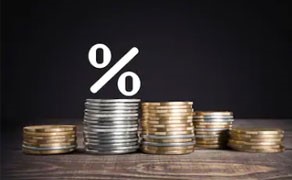Description

Disclaimer: Copyright infringement not intended.
Context
- The Reserve Bank of India (RBI) decided to delay the enforcement of its regulations concerning exchange-traded currency derivatives.
Understanding Currency Derivatives:
- Currency derivatives encompass futures and options contracts where a specified amount of a particular currency pair is traded on a predetermined future date.
- Unlike stock and futures options, currency derivatives' underlying assets are currency pairs like USDINR or EURINR, not stocks.
Participants in Currency Trading:
- The foreign exchange market is the arena for trading currency options and currency futures.
- The foreign exchange rate reflects the value of a foreign currency relative to the domestic currency.
- Key players in currency trading in India include banks, corporations, exporters, and importers.
Role of Currency Derivatives in India:
- Currency derivatives in India serve to shield businesses from fluctuations in foreign currencies such as the euro, dollar, and yen.
- Corporate entities frequently utilize these contracts for specific currencies, especially if they engage in regular imports and exports.

Market Dynamics:
- In India, currency derivatives predominantly involve central banks and importers-exporters.
- The daily trading volume of approximately 44,859 Cr. is primarily contributed by banks, corporations, importers, and exporters.
- However, the participation of speculators and arbitrageurs in the currency market is growing, driven by the increasing realization of profit potential among retail investors.
Trading Methods in India:
Trading in currency derivatives in India can be done through two main channels:
- The Bombay Stock Exchange (BSE) and the National Stock Exchange (NSE), recognized platforms offering currency derivatives.
- Investing in currency derivatives through stockbrokers, providing accessibility to the forex market.
Benefits of Currency Derivatives:
- Hedging: Currency derivatives serve as an effective tool for hedging against foreign currency exposure, minimizing losses during currency fluctuations, and enabling exporters and importers to manage profits or losses.
- Trading: Currency and futures options facilitate trading based on short-term market movements while considering the directional trend. Traders can strategize investments to capitalize on forex market opportunities.
- Arbitrage: Currency derivatives offer opportunities for arbitrage, allowing traders to exploit price differences in currency exchange rates for profit. Even minor disparities in prices can result in significant gains in currency derivatives trading.
SOURCE: TOI
|
PRACTICE QUESTION
Q. Which financial instruments are utilized in currency trading to mitigate risks associated with currency fluctuations, and how do they contribute to the functioning of the foreign exchange market?
|













